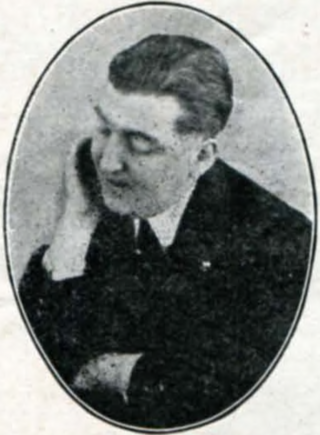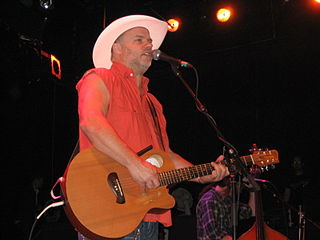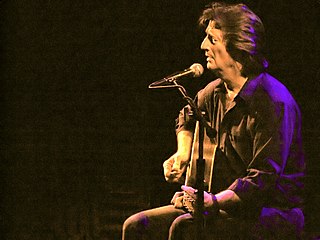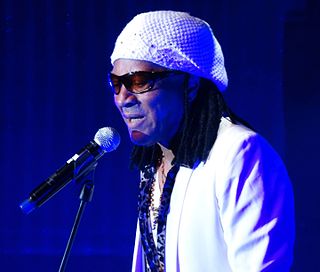
Al Kooper is a retired American songwriter, record producer, and musician, known for joining and naming Blood, Sweat & Tears, although he did not stay with the group long enough to share its popularity. Throughout much of the 1960s and 1970s he was a prolific studio musician, including playing organ on the Bob Dylan song "Like a Rolling Stone", French horn and piano on the Rolling Stones song "You Can't Always Get What You Want", and lead guitar on Rita Coolidge's "The Lady's Not for Sale". Kooper produced a number of one-off collaboration albums, such as the Super Session album that saw him work separately with guitarists Mike Bloomfield and Stephen Stills. In the 1970s Kooper was a successful manager and producer, recording Lynyrd Skynyrd's first three albums. He has had a successful solo career, writing music for film soundtracks, and has lectured in musical composition. Kooper was selected for induction for the Rock and Roll Hall of Fame in 2023.

Joe Young was an American lyricist, born in New York as Joseph Judewitz to immigrant Jewish parents. In 1911, he began his career as a singer and song-plugger for various music publishers. During World War I, he entertained U.S. troops and sang across Europe.

The New Lost City Ramblers, or NLCR, was an American contemporary old-time string band that formed in New York City in 1958 during the folk revival. Mike Seeger, John Cohen and Tom Paley were its founding members. Tracy Schwarz replaced Paley, who left the group in 1962. Seeger died of cancer in 2009, Paley died in 2017, and Cohen died in 2019. NLCR participated in the old-time music revival, and directly influenced many later musicians.

Rounder Records is an independent record label founded in 1970 in Somerville, Massachusetts by Marian Leighton Levy, Ken Irwin, and Bill Nowlin. Focused on American roots music, Rounder's catalogue of more than 3000 titles includes records by Alison Krauss and Union Station, George Thorogood, Tony Rice, and Béla Fleck, in addition to re-releases of seminal albums by artists such as the Carter Family, Jelly Roll Morton, Lead Belly, and Woody Guthrie. "Championing and preserving the music of artists whose music falls outside of the mainstream," Rounder releases have won 54 Grammy Awards representing diverse genres, from bluegrass, folk, reggae, and gospel to pop, rock, Americana, polka and world music. Acquired by Concord in 2010, Rounder is based in Nashville, Tennessee. In 2016, The Rounder Founders were inducted into the International Bluegrass Music Hall of Fame.
Reuben "Ruby" Braff was an American jazz trumpeter and cornetist. Jack Teagarden was once asked about him on the Garry Moore television show and described Ruby as "the Ivy League Louis Armstrong".

Frederick John Elgersma, known by the stage name Fred Eaglesmith, is a Canadian alternative country singer-songwriter. He is known for writing songs about vehicles, rural life, down-and-out characters, lost love and quirky rural folk. His songwriting uses techniques of short story writing, including unreliable narrators, surprise endings, and plot twists. In 2016, Eaglesmith toured extensively with his band.
Friend & Lover was an American folk-singing duo composed of husband-and-wife team Jim and Cathy Post. The duo is best known for its hit single "Reach out of the Darkness", which reached number 10 on the U.S. Billboard Hot 100 chart in the summer of 1968.

William Christopher Smither is an American folk/blues singer, guitarist, and songwriter. His music draws deeply from the blues, American folk music, and modern poets and philosophers.

Jonathan James Farriss is an Australian drummer and founding member of rock band INXS.

Sing to Me Mr. C was Perry Como's Eighth RCA Victor 12" long-play album. Joe Lipman was the chief music arranger for the release.

Cheap at Half the Price is a 1983 solo album by English guitarist, composer and improviser Fred Frith. It was Frith's fifth solo album, and was originally released in the United States on LP record on the Residents' Ralph record label. It was the third of three solo albums Frith made for the label.

Clyde "Skip" Battin was an American singer-songwriter, bassist, performer, and recording artist. He was a member of the Byrds, the New Riders of the Purple Sage, and the Flying Burrito Brothers.

Chris Trapper is an American songwriter and musician, best known as the singer and guitarist of the band The Push Stars. His song “This Time” appeared in August Rush.

Quinn Sullivan is an American singer, songwriter and guitarist from New Bedford, Massachusetts, United States.

James D. Helms is an American soul singer, known as a member of Londonbeat but who also had solo hits such as "Gonna Make You an Offer You Can't Refuse".

Frederick Perry Fish was an American lawyer and executive who served as president of American Telephone & Telegraph Corporation from 1901 to 1907. One of the leading patent attorneys of his age, representing such clients as Alexander Graham Bell, Thomas Edison, and The Wright Brothers, by the time of his death he was believed to have appeared in more patent cases at the Supreme Court than any other lawyer. He was the founder of the law firm now known as Fish & Richardson.

Boston Music Hall, 12/5/72 is an album by the country rock band the New Riders of the Purple Sage. It was recorded live on December 5, 1972, at the Music Hall in Boston, Massachusetts, and released on November 11, 2003. It was the second complete New Riders concert that was recorded in the 1970s and released in the 2000s as an album on the Kufala Recordings label.
Earl Gaines Jr. was an American soul blues and electric blues singer. Born in Decatur, Alabama, he sang lead vocals on the hit single "It's Love Baby ", credited to Louis Brooks and his Hi-Toppers, before undertaking a low-key solo career. In the latter capacity he had minor success with "The Best of Luck to You" (1966) and "Hymn Number 5" (1973). Noted as the best R&B singer from Nashville, Gaines was also known for his lengthy career.
Garrett Dutton, better known as G. Love, is an American singer, rapper and musician best known as the frontman for the band G. Love & Special Sauce.
David Grier is an American guitarist. In addition to his solo albums and recordings with Psychograss, Richard Greene and The Grass Is Greener, and with Todd Phillips and Matt Flinner, he has been featured as a performer on many albums by other artists.














